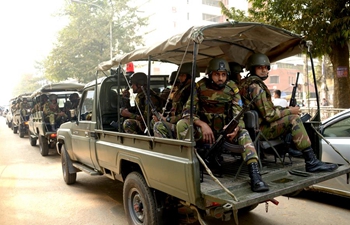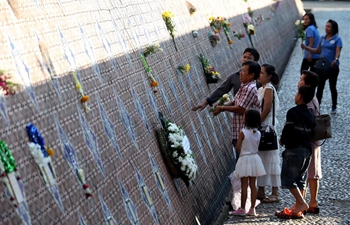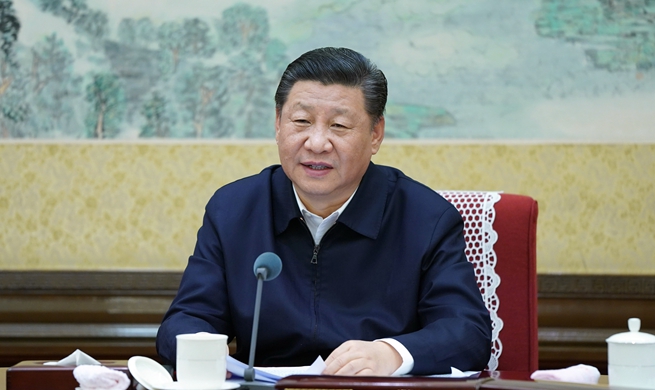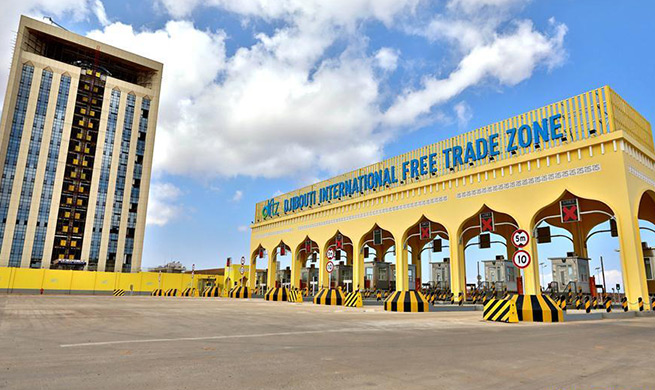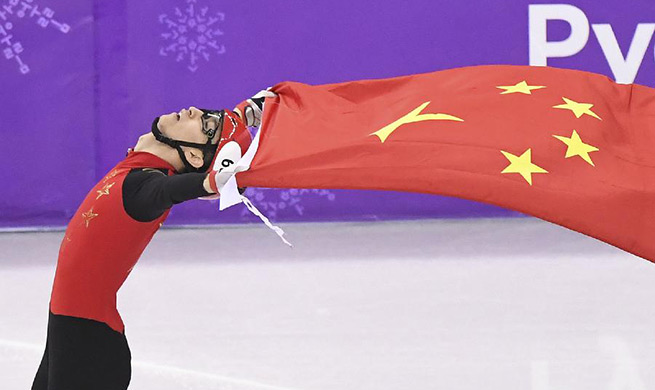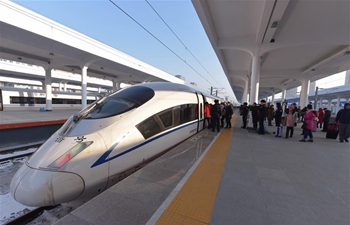NAIROBI, Dec. 27 (Xinhua) -- In 2018, Kenya experienced political stability and unity after the divisive polls of last year.
There has been little or no political bickering this year, with both ruling party Jubilee and opposition National Super Alliance politicians working together for the common purpose of the country.
The political tranquility followed the March 9 pact between President Uhuru Kenyatta and Opposition leader Raila Odinga.
The deal came as a shocker to friends and foes of the two long-time rivals, who had fought bitterly in two elections in 2017, the main one which was won by Kenyatta and contested by Odinga at the Supreme Court.
The top court annulled the win, ordering a fresh presidential election on Oct. 26, 2017, which Odinga boycotted and his supporters violently protested preventing polling in his strongholds.
On Jan. 30, 2018, Odinga swore himself in as the "People's President" in Nairobi, heightening political tensions and anxiety as the government cracked down on opposition politicians.
However, the truce between Odinga and Kenyatta ended the acrimony, putting Kenya on a different political trajectory that has seen the leaders across the political divide united.
"Some people have been asking, why did you go to speak with Odinga? But I tell them he is a Kenyan, and I have all the right to speak to him, and others ready to unite Kenyans," President Kenyatta said in one of the many meetings he held this year to drum up support for the unity.
"Never again shall a Kenyan die because of elections. We will unite and fight corruption together and we are committed to the unity deal and it will be implemented," said Odinga on the other hand.
Many Kenyans, both those supporting Odinga and Kenyatta, believe the pact has been good for the country and would foster development as the president serves his second term.
"The agreement cooled down political temperatures to levels last witnessed before the Kenyatta era that started on 2013, but most importantly, it brought hope and optimism to millions of Kenyans," Henry Wandera, an economics lecturer and political analyst in Nairobi, said on Thursday.
He noted that the benefits of the political stability have reverberated across the economy.
"The economy is projected to grow 6.3 percent this year and this is because of the stability and the shilling has strengthened since then," said Wandera.
Following the truce, the business environment improved, with both big and small organizations registering improved trading as compared to 2017.
Kenya's tourism sector has similarly benefited greatly from the stability the country is enjoying, with the east African nation seeing a steady arrival of foreign tourists as the West refrained from issuing any travel advisories. Kenya this year expects to attract more than the 1.45 million tourists recorded in 2017, according to the Ministry of Tourism.
The Kenyan shilling has similarly remained stable against the U.S. dollar, rising 1.8 percent to the greenback this year, a performance analysts attribute to the peaceful environment.
According to Wandera, on the political front, the deal slowed down succession politics that had started to gather pace soon after 2017 polls, forcing key political players back to the drawing board.
This has allowed Kenyatta to implement his legacy projects dubbed the Big Four Agenda.
Kenyatta and Odinga have since been awarded honorary doctorate degrees by the Jaramogi Oginga University of Science and Technology based in western Kenya for fostering unity in the country.




